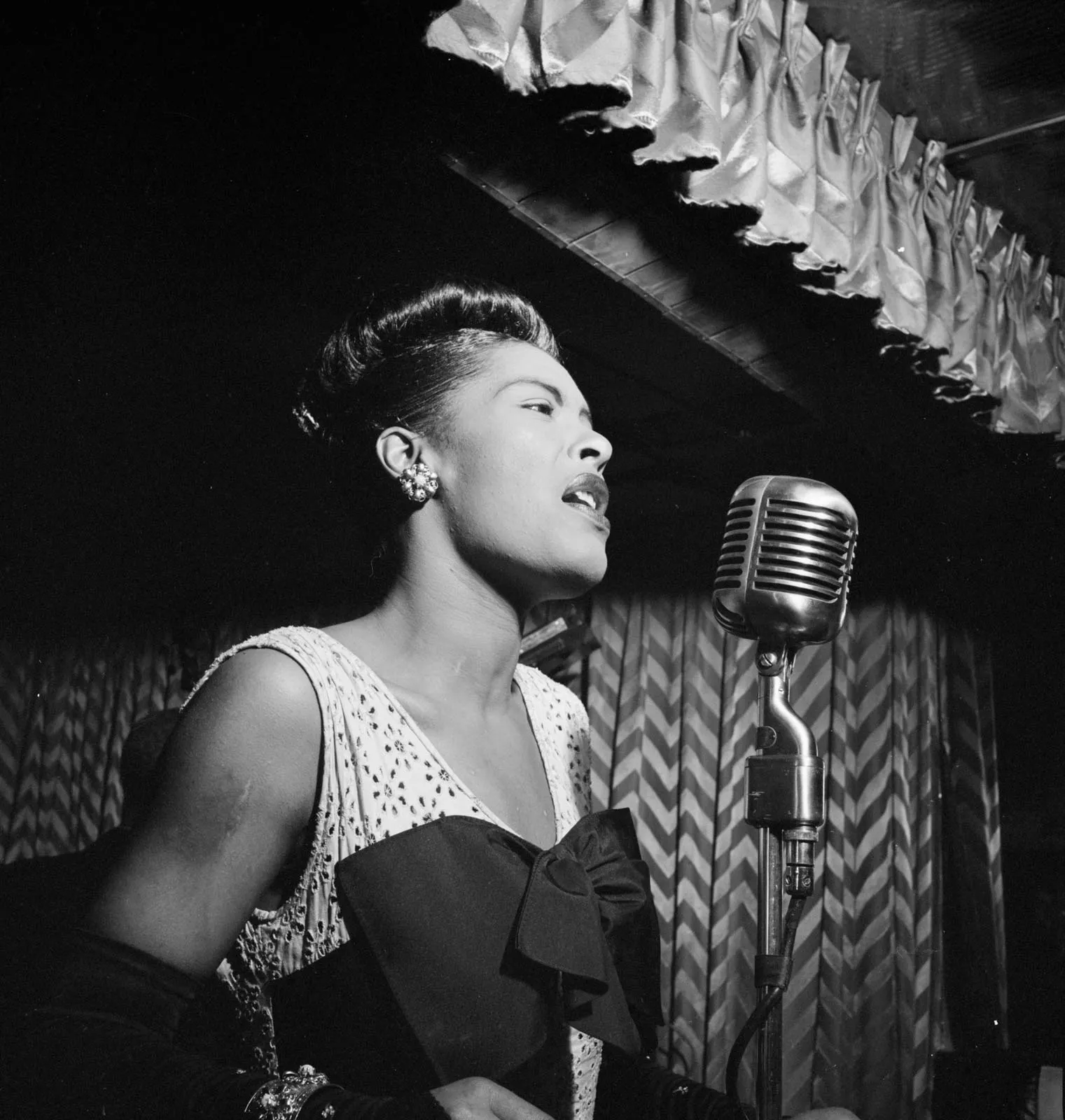Born in 1915, the 5 ‘4 powerhouse that was Billie Holiday is still in today’s world seen as one of the most influential jazz singers to have graced the planet. In her short, arguably tragic life, she recorded many songs which are incredibly famous to this day, telling stories of heartbreak and the struggles of living as a black person in America.
As academic Oosterhoff writes in What was this thing called Jazz? Holidayʼs most defining work was the performance of ʻStrange Fruitʼ a poem written by Jewish civil rights activist Abel Meeropol. The poem depicted the lynching of two black men in Indiana which she transformed into a song. When Holiday heard the lyrics of this poem, it conjured up memories of her father, sick with lung cancer; he was turned away from the hospital for being black, resulting in his unfair death.
This begs the question, why was this song so influential? It may have been to do with the stark lyrics which laid bare the dark underbelly of America, a place where as sung in ʻStrange Fruitʼ , black bodies swing in the southern breeze. The sinister image of hanging bodies was conjured up to all those that heard the song, it unsettled people and made them think. Whilst the song was embraced by civil rights activists, many people did not agree with the song and wanted to silence Miss Holiday. This did not stop Lady Day, she was determined to perform this harrowing song. In 1939 she walked up to the mic at West 4thʼs cafe Society in New York to perform Strange Fruit. She requested that the waiters stopped serving and the room went completely black, a spotlight shone on her face as she began to sing. Oosterhoff argues these performance details were purposeful, Holiday wanted the attention of white middle class people who had set up the segregated, violent system against black people.
A prominent figure at the time who wanted to preserve this system was known racist Harry Anslinger, the Federal Bureau of Narcotics commissioner. He believed that drugs caused black people to overstep boundaries in American society, including black jazz singers who created the ʻdevilʼs musicʼ. After her performance of Strange fruit and the publicity it gained, Aslinger forbade her to perform it, scared of its influence, however she refused. From then onwards, Aslinger set out to destroy Holiday, exploiting her drug addiction, which was her means of coping with the trauma she had endured as a child.
Not only was Holidayʼs determination to speak out against racial violence successful during her life, its effects can still be felt in todayʼs America. Many people argue that ʻStrange Fruitʼ even over 80 years later is relevant to the racial politics in America, with the murdering of innocent black civilians carrying on, such as George Floyd. With the return of the Black Lives Matter protests in 2020, the song remerged. Within the first six months of the year it had been streamed more than two million times according to the Rolling Stone charts. Once again, the voice of Billie Holiday was the soundtrack to the uncovering of the deeply rooted issues in American culture. Bruce Springsteen also included Strange Fruit on his playlist of protest songs, in an interview with The Atlantic he stated that the song “still strikes a deep, deep, deep nerve in the conversation of today.”





















